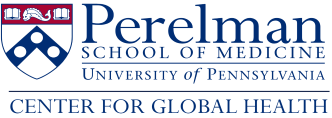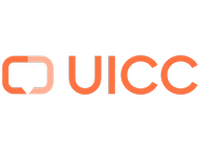Our Partners
Penn Center for Global Oncology's partners include:
Penn Partners
 Penn Medicine's Abramson Cancer Center is a world leader in cancer research, patient care and education. Our preeminent position is reflected in our continuous designation as a Comprehensive Cancer Center by the National Cancer Institute (NCI) since 1973, one of 51 such centers in the United States.
Penn Medicine's Abramson Cancer Center is a world leader in cancer research, patient care and education. Our preeminent position is reflected in our continuous designation as a Comprehensive Cancer Center by the National Cancer Institute (NCI) since 1973, one of 51 such centers in the United States.
At the Abramson Cancer Center, we are dedicated to innovative and compassionate cancer care. Our clinical program, comprised of a dedicated staff of physicians, nurse practitioners, nurses, social workers, physical therapists, nutritionists and patient care coordinators, currently sees 305,248 outpatient visits and more than 10,230 discharges, and provides more than 81,471 chemotherapy and 66,110 radiation treatments.
Not only are we dedicated to providing state-of-the-art care, the latest forms of cancer prevention, diagnoses and treatments are available to our patients through clinical themes developed in the relentless pursuit to eliminate the pain and suffering from cancer, with more than 9,069 participants in nearly 600 clinical trials.
In addition, the Abramson Cancer Center is home to the 400+ basic, translational and clinical scientists who relentlessly work to determine the pathogenesis of cancer. Together, our faculty is committed to improving the prevention, diagnosis and treatment of cancer.
 Founded at the Abramson Cancer Center at the University of Pennsylvania in 2018, the Penn Center for Cancer Care Innovation (PC3I) is the nation’s first center working at the nexus of research and practice to create, test, and scale solutions to transform cancer care delivery.
Founded at the Abramson Cancer Center at the University of Pennsylvania in 2018, the Penn Center for Cancer Care Innovation (PC3I) is the nation’s first center working at the nexus of research and practice to create, test, and scale solutions to transform cancer care delivery.
 The Center for Global Health (CGH) at the Perelman School of Medicine, University of Pennsylvania, is dedicated to advancing health equity and improving global health outcomes. Its mission encompasses public health awareness, increased access to care, impactful research, and comprehensive education programs developed in partnership with global communities. CGH focuses on key areas such as oncology, women's health, infectious diseases, and mobile health technology, while fostering the development of future global health leaders through bi-directional exchange and training. With a presence in 87 countries, over 156 funded projects, and approximately $31 million in grants, the Center unites the Penn global health community to promote collaboration among students, staff, faculty, and international partners.
The Center for Global Health (CGH) at the Perelman School of Medicine, University of Pennsylvania, is dedicated to advancing health equity and improving global health outcomes. Its mission encompasses public health awareness, increased access to care, impactful research, and comprehensive education programs developed in partnership with global communities. CGH focuses on key areas such as oncology, women's health, infectious diseases, and mobile health technology, while fostering the development of future global health leaders through bi-directional exchange and training. With a presence in 87 countries, over 156 funded projects, and approximately $31 million in grants, the Center unites the Penn global health community to promote collaboration among students, staff, faculty, and international partners.
Penn's Hematology/Oncology Division is a comprehensive program dedicated to the clinical care and research, providing the most advanced treatment for all types of cancers and blood-related disorders. Our faculty members, more than 130, are involved in research to develop new and more effective methods for diagnosing and treating these diseases and for educating the physicians and researchers of the future. The division provides a framework in which basic scientists, translational researchers, clinical investigators and clinicians collaborate advance the understanding of difference cancers and blood disorders, and on designing new therapies. The synergy between basic and clinical research is a fundamental characteristic of the division.
Penn hematologists and medical oncologists are members of multidisciplinary teams. They approach the treatment of cancer and blood disorders by treating the entire individual; not just the disease. Patients benefit by having a team of experts from various specialties working together to determine the best course of treatment in a supportive, compassionate environment.
Penn Radiation Oncology is dedicated to a three-part mission of excellence in patient care, basic and translational research, and the education of residents and students. We are committed to delivering excellence in every area and as such we steadfastly believe that "Excellence is Standard."
Penn Radiation Oncology is one of the most comprehensive radiation oncology programs in the world. The outstanding faculty and staff, combined with Penn’s extensive collection of advanced technology, gives patients access to nearly every treatment option available for their cancer. The broad range of radiation treatments available include Proton Therapy, intensity-modulated radiation therapy (IMRT), high-dose rate (HDR) and low-dose rate brachytherapy, partial breast irradiation, stereotactic radiosurgery (SRS), and Gamma Knife radiation. With the Abramson Cancer Center of the University of Pennsylvania, Penn Radiation Oncology provides patient care at the Ruth and Raymond Perelman Center for Advanced Medicine (PCAM), six major hospitals, and nine community-based sites.
External Partners
 Partners in Health's mission is to provide a preferential option for the poor in health care. By establishing long-term relationships with sister organizations based in settings of poverty, Partners In Health strives to achieve two overarching goals: to bring the benefits of modern medical science to those most in need of them and to serve as an antidote to despair.
Partners in Health's mission is to provide a preferential option for the poor in health care. By establishing long-term relationships with sister organizations based in settings of poverty, Partners In Health strives to achieve two overarching goals: to bring the benefits of modern medical science to those most in need of them and to serve as an antidote to despair.
We draw on the resources of the world’s leading medical and academic institutions and on the lived experience of the world’s poorest and sickest communities. At its root, our mission is both medical and moral. It is based on solidarity, rather than charity alone.
When our patients are ill and have no access to care, our team of health professionals, scholars, and activists will do whatever it takes to make them well—just as we would do if a member of our own families or we ourselves were ill.
 The Union for International Cancer Control (UICC) is a global organization dedicated to uniting and supporting the cancer community to reduce the global cancer burden, promote equity, and ensure cancer remains a priority in global health. Founded in 1933 and based in Geneva, Switzerland, UICC has over 1,100 member organizations across more than 170 countries, including cancer societies, research institutes, treatment centers, and health agencies. It collaborates with global entities like WHO and IARC to enhance cancer control efforts through capacity building, advocacy, convening stakeholders, and raising awareness through initiatives like World Cancer Day. By fostering collaboration and knowledge-sharing, UICC aims to create a world where cancer is no longer a leading cause of death and suffering.
The Union for International Cancer Control (UICC) is a global organization dedicated to uniting and supporting the cancer community to reduce the global cancer burden, promote equity, and ensure cancer remains a priority in global health. Founded in 1933 and based in Geneva, Switzerland, UICC has over 1,100 member organizations across more than 170 countries, including cancer societies, research institutes, treatment centers, and health agencies. It collaborates with global entities like WHO and IARC to enhance cancer control efforts through capacity building, advocacy, convening stakeholders, and raising awareness through initiatives like World Cancer Day. By fostering collaboration and knowledge-sharing, UICC aims to create a world where cancer is no longer a leading cause of death and suffering.


